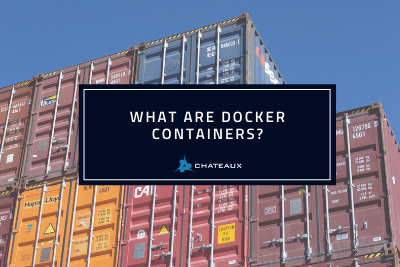“Most of the world will make decisions by either guessing or using their gut. They will be either lucky or wrong.” – Suhail Doshi, CEO, Mixpanel
 The data captured by your business is one of your greatest assets. But the amount of data collected is growing at a rapid rate and many businesses find the amount of data that they gather unmanageable. A solution that can help businesses to convert this data into easily consumable information is a data warehouse.
The data captured by your business is one of your greatest assets. But the amount of data collected is growing at a rapid rate and many businesses find the amount of data that they gather unmanageable. A solution that can help businesses to convert this data into easily consumable information is a data warehouse.
While it’s not the right solution for everyone, there are many benefits to having a data warehouse. For example, making business operations more efficient, providing important information to influence decision making, and increasing the operational value of business applications.
With this in mind, how do you know whether a data warehousing project is the right way forward for your business?
1. You have lots of data – but struggle to gain useful information from it
If you have lots of data, but are finding it unmanageable to work through, a data warehousing project could be for you. Through moving your data to a data warehouse, thousands of fields of data can be streamlined into a few hundred fields of relevant information.
For example, one of our clients had IT systems designed to store data, not information. They had over 23 thousand fields of data which was completely unmanageable for staff to work through or glean useful information from. We created a data warehouse that streamlined the data into 500 fields of information relevant to their business users.
This saved staff hours of time, enabled a more intelligent way of working, and ensured best use of the data collected by the business.
2. You are frequently acquiring new companies
Acquisitive companies benefit greatly from data warehousing projects. Data warehouses bring together data from a number of sources into one centralized location. This is particularly important during periods of acquisition. The data warehouse enables the acquiring company to consolidate data with ease, which in turn smooths the transition of merging the two businesses.
3. Discrepancies in data and reports
When different areas of the business create reports, do you often find that their data or outcome is different to your own? Or to other reports that have been created? This is both a common and frustrating occurrence within many businesses and can lead to costly mistakes.
It can be time consuming to try and fix these reporting issues, and additionally, many companies have departments that keep certain aspects of their data or reporting within their team, making it almost impossible. If this is something you recognize, then this could be a clear sign that your business needs a data warehouse. A data warehouse enables data from different business departments to be consolidated with ease and can output this data into clear, easy to understand reports. This avoids multiple reports being made and ensures data is not duplicated.
4. Your staff spend too much time generating reports
In an ideal world, if you’re using existing data, it should be possible to generate a report almost instantly. However, many organizations find that when generating reports, they must consult multiple data sources and manually consolidate and sort through this data. This task becomes more strenuous over time as the volume of data collected increases.
As previously mentioned, data warehouses consolidate data, meaning staff can access critical data from a number of sources all in one place. This means they won’t be wasting precious time reviewing data from multiple sources. Not only that, but reports are not difficult to generate, meaning business executives can generate their own reports without needing support from IT teams. By automating reporting, data analysts can spend less time generating reports and more time reviewing how information will impact business needs.
5. You need to utilize historical data to make future business decisions
It’s important for many businesses to use data from the past to enable them to make future business decisions. A data warehouse stores large amounts of historical data so that you can analyze trends from different time periods with ease. This is difficult or sometimes impossible to do using traditional IT methods.
Okay, I think I need to undertake a data warehousing project. What do I do now?
If you’d like to know more about data warehousing take a look at our service page, or if you’d like to discuss a data warehousing project, please get in touch with a member of the team today by calling 203-222-7118 or email us at [email protected].








